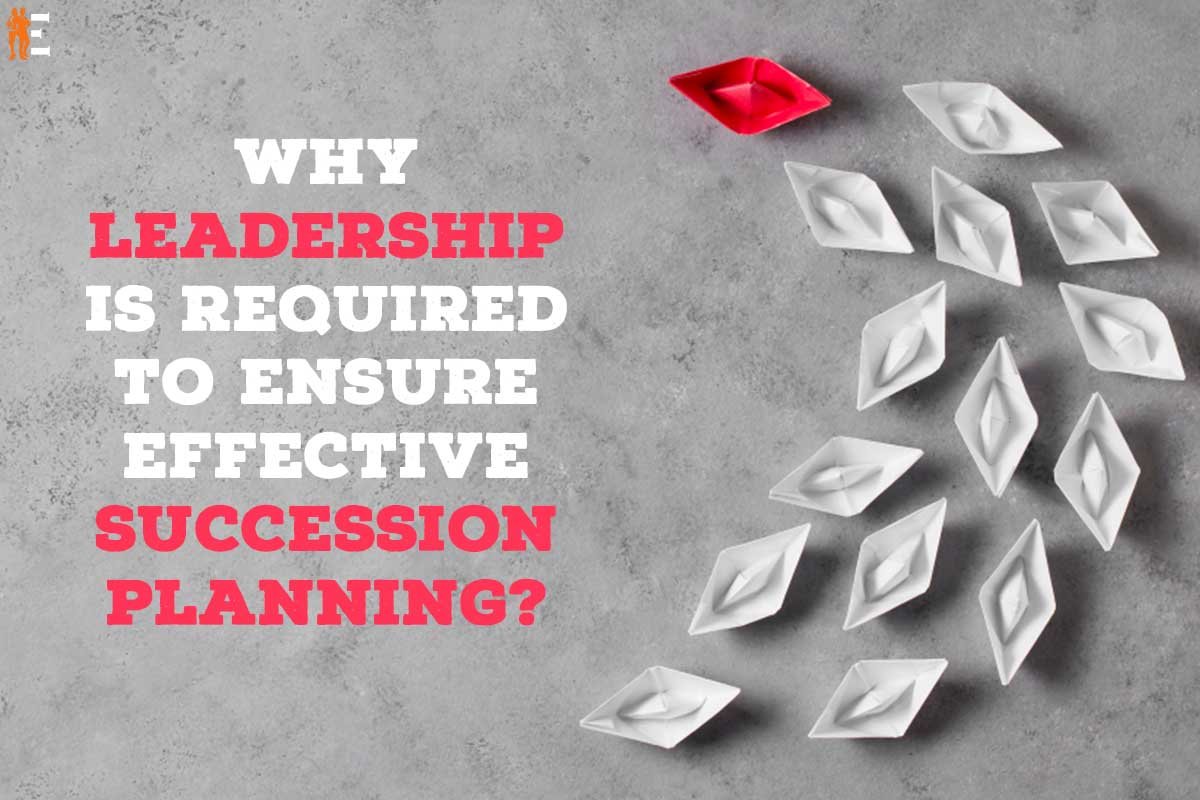Organizations don’t always have an easy time replacing top executives. Effective succession planning aims to attract the best talent, Numerous CEO exits have been accompanied by power battles, scandals, and stock price drops. Companies are struggling to find successors for any position, much alone leadership jobs that need years of mentoring and experience, as record numbers of people leave the workplace. When leaders deal with the everyday changes of the post-pandemic period, developing a succession plan may be the last thing in their thoughts. But, without one, the firm risks fast declining during a change of guard, losing revenue and market share. This week, we’ll look at several ways for preparing for both planned and unanticipated leadership exits.
Leaders at all levels must be prepared to adjust rapidly in today’s volatile climate. Consider how quickly your chosen candidates are likely to adapt to trends that the epidemic has hastened and that will define the future when considering prospective successors. For example, sustainability is no more a nice-to-have: it is as important to competitive advantage as agility or digital transformation.
Effective succession planning is part of a broader talent management program. The capacity to cultivate talent and ensure that individuals have a feeling of purpose in their job is also important. Additional initiatives include increasing operational efficiency and using cloud capabilities to boost innovation and productivity. Do your candidates for leadership jobs have the attitude to embrace these difficulties and come up with inventive solutions? The response to this question may assist you in distinguishing the finest applicants from the others.
5 Reasons why leadership is required to ensure effective succession planning;
Many business owners are so preoccupied with the day-to-day operations of their firm that they neglect to prioritize succession planning. Some leaders may believe they are too young to be struck by a catastrophic disease. Maybe they fail to see that a key person (or many) may be enticed away by another organization in need of their expertise and prepared to pay top cash for them. Any of these conditions might leave a company susceptible.
Remember: Effective succession planning is another stage in your senior leadership’s strategy to secure the firm – whether you are physically there for its long-term success or not. Beginning the discussion may be difficult, but the sooner you start working on your succession plan, the sooner your company will be ready for the long haul. Consider it company continuity insurance that necessitates staff grooming.
1. Determines your most capable future leaders
Proper succession planning necessitates that your company: Determine which jobs are most important to the company’s future development. These may not all be C-level jobs. Find internal individuals who have the values, talents, and motivation to take on those vital tasks. Speak to prospective applicants about their hobbies and career ambitions.
These critical processes in effective succession planning result in a number of advantages. First, a comprehensive examination of your organizational chart may assist your leadership in better identifying possible risks and create a feeling of urgency to cross-train important workers in certain positions. On the other hand, if there are no internal candidates who seem to be a good fit for leadership roles, you know it’s time to start looking outside.
Most importantly, effective succession planning allows ambitious, less-experienced internal candidates to know that their hard work and abilities have been seen and valued enough to be considered for progress. For junior managers and subject matter experts looking to extend their careers into management, this may be a fantastic retention tool and motivation.
2. Provides a framework for training and development.
After your organization has determined that Sally, Bob, and Bruce want to advance to senior roles, you may identify any skill gaps and begin grooming them for future succession. Some professional development for employees may take the form of coaching, mentorship, job shadowing, or a progressive rise in more advanced duties.

Some occupations may even need returning to school to get more education or professional certification. By tapping prospective successors early, you allow workers time to gain the skills and expertise they’ll need to perform successfully in their senior jobs. You also let them know that you’re prepared to invest in their progress as much as the company’s.
3. Maintains additional eyes on a work
After your top prospects are nurtured, your firm has an opportunity to harvest possibly its most valuable weapon for growth and success. This occurs when a junior management is sitting with their senior boss and discussing why they are doing things the way they are. The basic act of describing the status quo aids in the discovery of flaws in processes and procedures, as well as new sales possibilities and potential for positive change.
This natural process enables your firm to maintain an additional pair of eyes on its leadership jobs and fosters criticism of outdated or inefficient corporate conventions. In this approach, Effective succession planning helps to secure your company’s future. As retired workers depart, they might serve as a sounding board for queries and concerns, handle client issues, and do other things. This helps to make the move easier.
4. Keeps the brand’s identity
You regularly hear about CEOs who enter a firm from the outside with enormous potential, only to collapse within a short period of time. However, such bad employees often harm the company’s image and long-term success.
This often occurs because the outsider CEO does not comprehend the underlying principles and goals of their new firm since they have not “grown up” in it. They pull the corporation away from its core brand in order to put their own imprint on it or because they fail to understand client wants.

The advantages of effective succession planning are that it assists your firm in avoiding this. By selecting and developing an internal successor, your firm assures that it will be managed by someone who shares its values and has a thorough understanding of the company’s brand promise, customers, and workers because they have lived it.
5. Aids the company’s long-term planning
Change occurs quickly. Your team can plan for the future when your organization understands where it’s heading. When you include effective succession planning into your company’s overall development strategy, you offer a way for retiring workers to pass on their years of hard-earned expertise and key working connections before they depart.

A succession plan’s goal is to help your firm expand with purpose by identifying and planning for weaknesses in other parts of the organization. Additional advantages of effective succession planning may include assisting in determining which areas deserve innovation, defining realistic development targets, and preparing for future talent requirements that may arise as a consequence of that growth.











